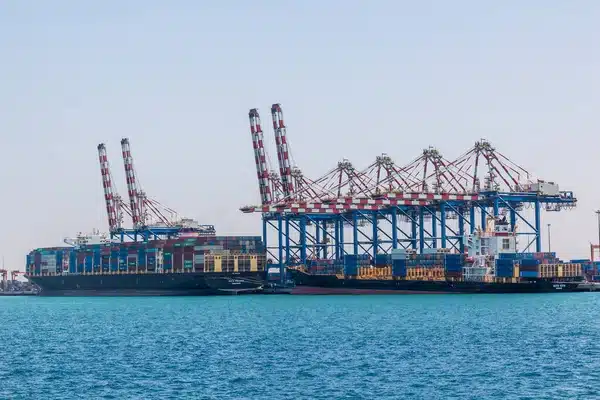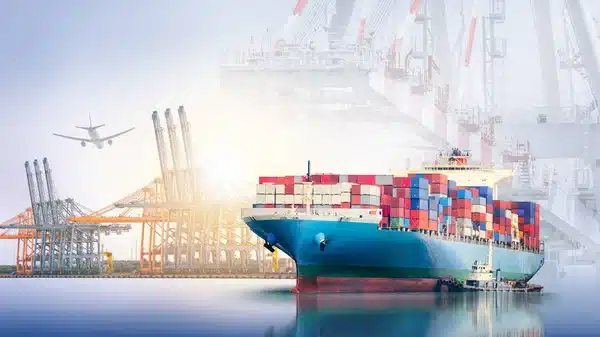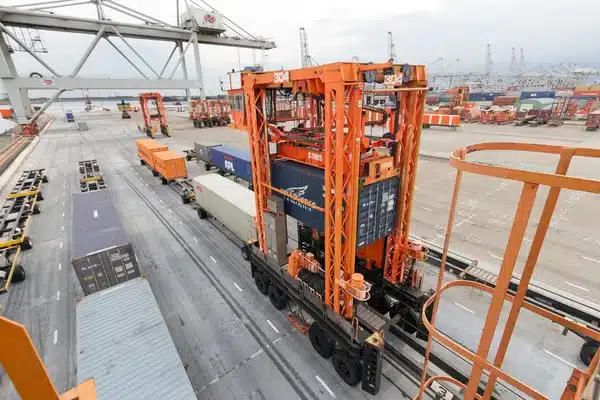Shipping containers from China to Canada is a vital link in global trade, connecting manufacturers in China with businesses and consumers in Canada. Whether you’re importing electronics, furniture, machinery, or textiles, understanding the costs and logistics associated with 20FT and 40FT containers is essential for budgeting and planning.
This comprehensive guide explores the costs of shipping 20FT and 40FT containers from China to Canada, highlighting key factors influencing prices, transit times, and tips for reducing expenses. With insights into major ports, shipping routes, and container types, this guide equips businesses with the knowledge to streamline their supply chain.

Table of Contents
Overview of 20FT and 40FT Containers
Dimensions and Capacities
| Specification | 20FT Container | 40FT Container |
|---|---|---|
| External Length | 6.06 meters (20 feet) | 12.19 meters (40 feet) |
| External Width | 2.44 meters (8 feet) | 2.44 meters (8 feet) |
| External Height | 2.59 meters (8.5 feet) | 2.59 meters (8.5 feet) |
| Internal Length | 5.90 meters | 12.03 meters |
| Internal Width | 2.35 meters | 2.35 meters |
| Internal Height | 2.39 meters | 2.39 meters |
| Volume Capacity | 33 cubic meters | 67 cubic meters |
| Payload Capacity | 28,200 kg | 28,800 kg |
Common Uses
20FT Containers: Ideal for smaller shipments such as consumer goods, machinery, or raw materials.
40FT Containers: Suitable for bulk shipments, oversized goods, or large-volume orders.
Key Ports in China and Canada
Major Ports in China
Shanghai Port: The busiest container port globally, known for its high efficiency.
Shenzhen Port: Handles significant volumes of electronics and consumer goods.
Ningbo-Zhoushan Port: Ideal for bulk cargo and heavy machinery.
Qingdao Port: A vital hub for shipments to North America.
Guangzhou Port: Frequently used for mixed cargo and textiles.
Major Ports in Canada
Port of Vancouver: Canada’s largest and busiest port, located on the west coast.
Port of Montreal: A critical hub for shipments to eastern Canada and the U.S. Midwest.
Port of Prince Rupert: Offers shorter transit times from Asia due to its strategic location.
Container Shipping Costs from China to Canada
Here is an estimate of the costs for shipping 20ft and 40ft containers from major ports in China to key destinations in Canada:
| Origin Port | Destination Port | 20ft Container Cost (USD) | 40ft Container Cost (USD) |
|---|---|---|---|
| Shanghai, China | Vancouver, Canada | $1,800–$2,300 | $3,200–$3,800 |
| Ningbo, China | Vancouver, Canada | $1,900–$2,400 | $3,300–$3,900 |
| Shenzhen, China | Vancouver, Canada | $1,700–$2,200 | $3,000–$3,600 |
| Shanghai, China | Toronto, Canada | $2,500–$3,200 | $4,300–$5,100 |
| Ningbo, China | Toronto, Canada | $2,600–$3,300 | $4,400–$5,300 |
| Shenzhen, China | Toronto, Canada | $2,400–$3,100 | $4,200–$5,000 |
| Shanghai, China | Montreal, Canada | $2,400–$3,000 | $4,200–$4,800 |
| Ningbo, China | Montreal, Canada | $2,500–$3,100 | $4,300–$4,900 |
| Shenzhen, China | Montreal, Canada | $2,300–$2,900 | $4,000–$4,700 |

Factors Influencing Shipping Costs
1. Cargo Volume and Weight
Shipping companies calculate costs based on volumetric weight or actual weight, whichever is higher. Optimize packaging to reduce unnecessary volume.
2. Seasonality
Peak seasons, such as Chinese New Year or the holiday season, typically result in higher shipping costs due to increased demand.
3. Port Fees and Handling Charges
Each port has specific handling charges that vary by location. Ports with advanced facilities may have higher fees.
4. Fuel Surcharges
Fluctuations in global fuel prices directly impact shipping rates. Monitor fuel surcharge trends to anticipate cost changes.
5. Type of Cargo
Hazardous, oversized, or temperature-sensitive cargo often incurs additional charges due to special handling requirements.
Transit Times from China to Canada
| Route | Estimated Transit Time (Sea Freight) |
| Shanghai to Vancouver | 20 – 25 days |
| Shenzhen to Prince Rupert | 18 – 22 days |
| Ningbo-Zhoushan to Montreal | 30 – 35 days |
| Qingdao to Toronto | 32 – 38 days |
| Guangzhou to Halifax | 28 – 33 days |
Air freight offers faster transit times, ranging from 3 to 7 days, but is significantly more expensive.

Customs Clearance for Canada
1. Required Documents
- Bill of Lading (B/L)
- Commercial Invoice
- Packing List
- Certificate of Origin
- Canada Customs Invoice (CCI)
2. Customs Duties and Taxes
Duties vary depending on the Harmonized System (HS) code of the goods. Importers should verify the applicable rates for their products to avoid unexpected costs.
3. Role of Customs Brokers
Hiring a customs broker can simplify the clearance process, ensuring compliance with Canadian regulations and reducing the risk of delays.
Tips to Optimize Shipping Costs
1. Consolidate Shipments
Combine smaller shipments into one container to save costs on LCL (Less-than-Container Load) rates.
2. Choose the Right Container Type
Select 20FT containers for smaller loads and 40FT containers for bulk shipments to maximize cost efficiency.
3. Work with Reliable Freight Forwarders
Experienced forwarders, such as Tonlexing, provide tailored solutions to minimize costs and ensure timely delivery.
4. Plan Shipments During Off-Peak Seasons
Avoid peak seasons to take advantage of lower freight rates and reduced congestion.
How Tonlexing Simplifies Container Shipping
At Tonlexing, we specialize in providing end-to-end shipping solutions tailored to your business needs. Our services include:
Competitive Pricing: Transparent and affordable rates for 20FT and 40FT containers.
Customs Expertise: Seamless customs clearance for hassle-free imports.
Real-Time Tracking: Monitor your shipment at every stage of its journey.
Flexible Solutions: Options for sea, air, and rail freight to Canada.
Contact us today for a customized shipping plan that optimizes costs and ensures reliable delivery.
Shipping 20FT and 40FT containers from China to Canada involves understanding various factors, from costs and transit times to port-specific nuances. By leveraging reliable freight forwarders and optimizing shipment strategies, businesses can navigate the complexities of international logistics with ease.
Whether you’re a first-time importer or an experienced trader, planning and collaboration with experts like Tonlexing can make all the difference. Reach out to us for professional guidance and tailored solutions for your shipping needs.

